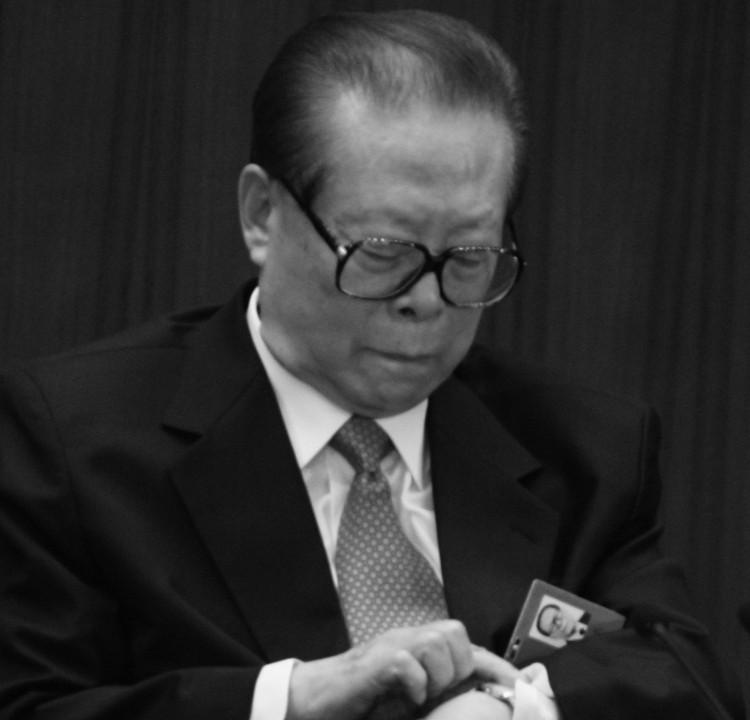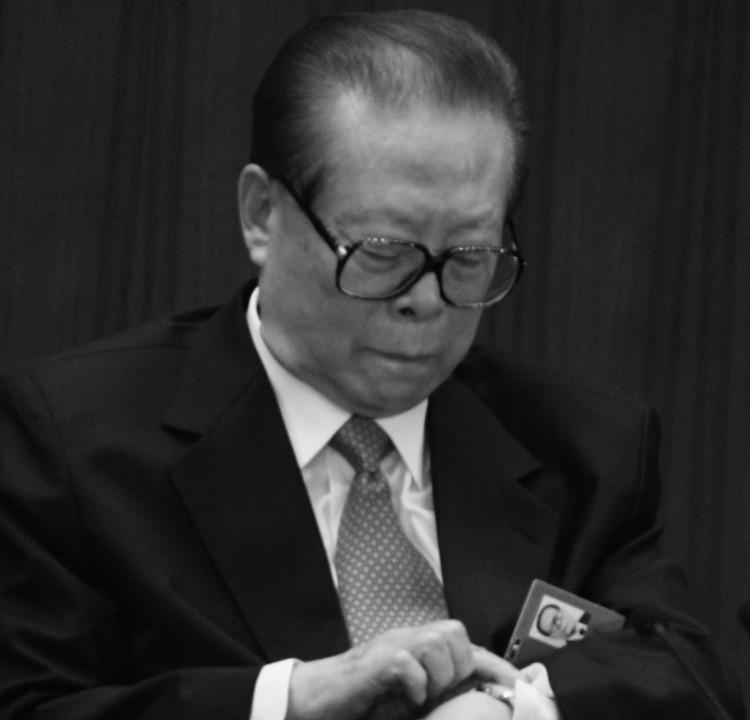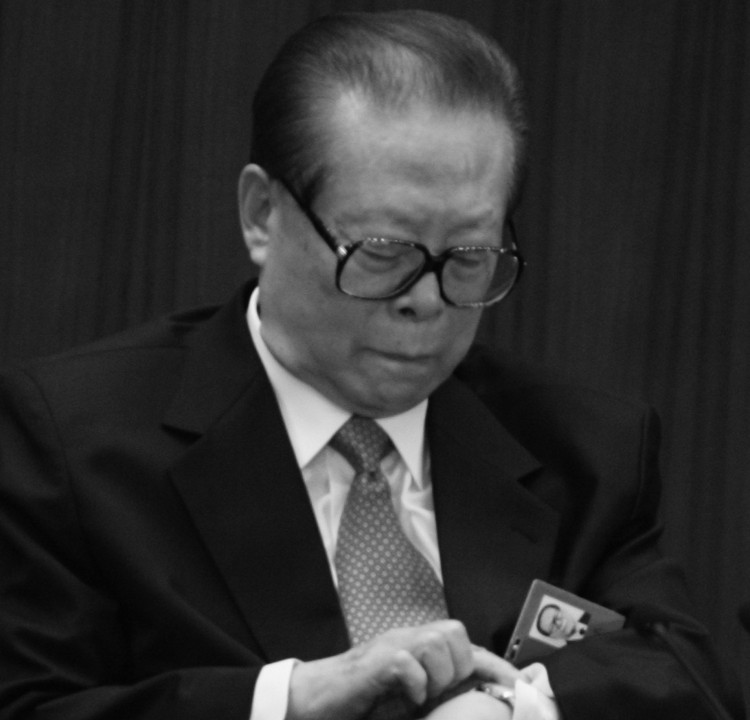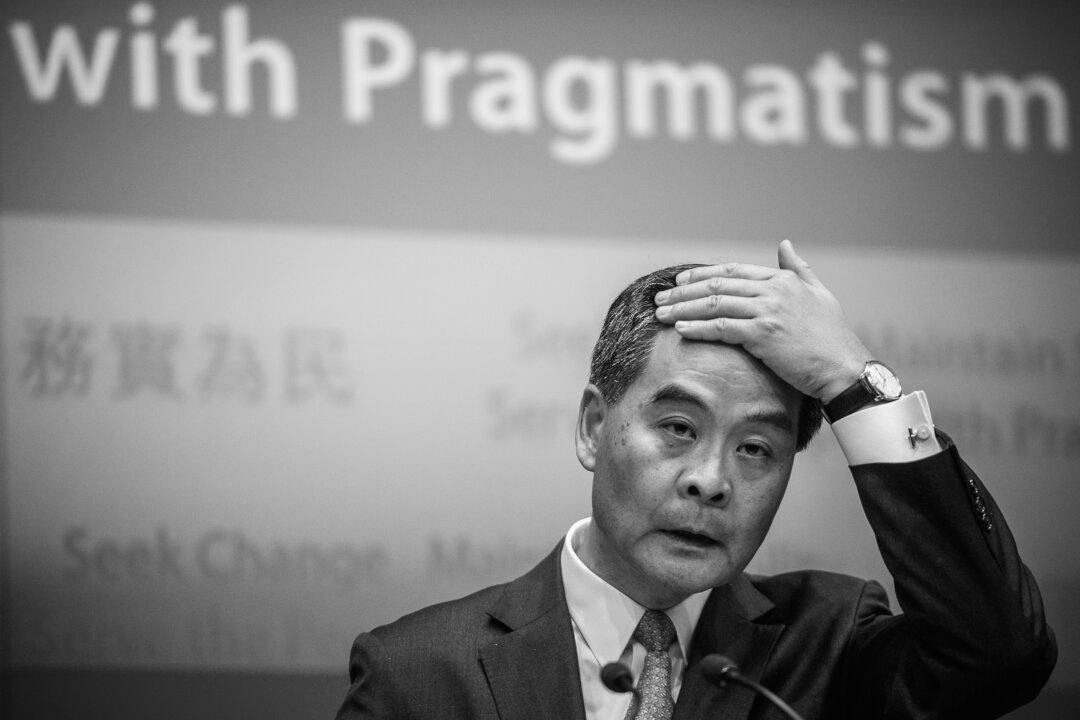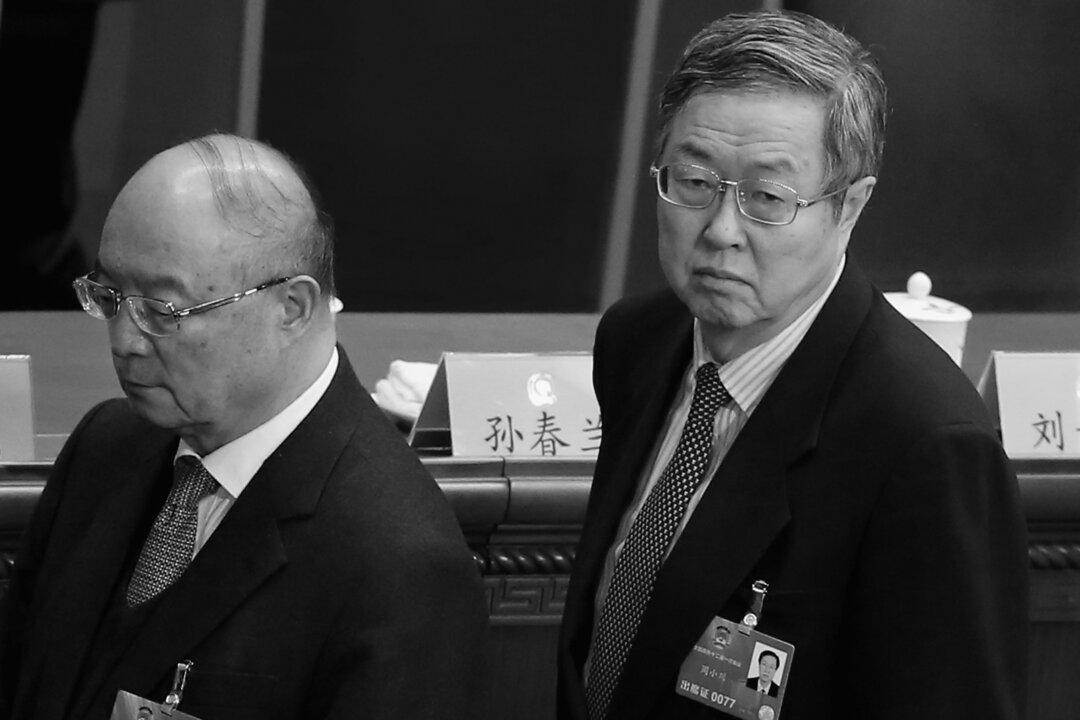For a decade after formally stepping down from the throne of communist power, Jiang Zemin continued to wield influence and make his presence felt in Chinese politics. Now there are signs that the authority of this longtime éminence grise may finally be receding.
At a recent funeral event for a late general who was also a well-known foe, Jiang was listed last in the name of Party leaders who came to pay respects.
And recently, two former senior Chinese Communist Party (CCP) officials wrote a letter to the CCP Central Committee to set up a special task force to investigate and “correct” Jiang’s often wayward political conduct.
A series of other slights have also taken place against Jiang, things he would never have tolerated at the height of his authority, indicating that his power to effect events behind-the-scenes in the Party is waning.
During the laying of wreaths for deceased People’s Liberation Army General Yang Baibing on Jan. 21, Jiang was listed last, as the twelfth named participant.
Per previous custom, on a similar funerary occasion last November he was ranked third.
The ordering of names of Chinese communist leaders is crucial for telegraphing to the Party corps and the masses at large the relative power and influence of senior leaders. All the way up till the 18th Party Congress that took place last November, and brought in the new leadership team headed by Xi Jinping, Jiang was listed behind then-General Secretary Hu Jintao. Years after having no official role in the Party, Jiang also regularly appeared alongside Hu Jintao on public occasions, a practice that was without precedent in communist China and was never explained in the state press.
Since retiring as general secretary, Hu has not inserted himself into public events held by new leader Xi Jinping. He also handed Xi control over the military, whereas Jiang retained that power for two years after relinquishing his title as Party leader.
Two days after the new ranking appeared on Jan. 21, Xinhua, the regime mouthpiece, ran a one-paragraph notice that Jiang had personally requested the change. “Xinhua highly praised this demonstration of the noble character and broad mind of a communist,” the report said.
This follow-up note rang false with analysts of Chinese Party politics, however. “This odd news is no doubt in response to the mystery of the ranking order and is undoubtedly meant to show that the ranking was Jiang’s active request,” commentator Zhou Xiaohui wrote in a recent piece for the Chinese edition of The Epoch Times.
“But nobody will believe it,” Zhou said. “Jiang is most famous for his love of power. Moreover, the timing is off: If it’s the case, why was it not reported together with Jan. 21 news?”
According to Zhou’s analysis of the events, since taking power in November Xi Jinping has set about rooting out Jiang’s influence. The follow-up from Xinhua was a belated attempt for Jiang to save face, Zhou suspects.
Around the time of the name order contretemps, the Hong Kong political magazine Cheng Ming, which regularly features leaks from Party insiders and analysis of communist machinations, reported that the senior officials Wan Li and Qiao Shi recently sent a letter to the CCP Central Committee urging them to investigate Jiang.
Both men were enemies of Jiang during their time in office. Qiao Shi was shunted out of the Politburo Standing Committee by Jiang, after the latter created an arbitrary rule that those who were turning 68 should step down. Qiao Shi and Wan Li said that Jiang had “positioned himself above the Politburo, trampling on Party discipline and the state constitution,” according to Cheng Ming, who cited a Party insider.
More prosaic measures also appear to have been taken against Jiang, like the cancellation of his good friend’s orchestra.
Jiang’s close associate Li Lanqing established the “Three High” (San Gao) orchestra consisting mainly of high-ranking Party officials, military officers, and scholars, last May. Li is particularly close to Jiang because he was the first apparatchik to head the 610 Office, the extralegal agency created by Jiang in 1999 to implement the statewide persecution of Falun Gong, a popular spiritual practice whose attempted elimination Jiang made the hallmark of his rule, and which remains a personal crusade.
Li was said to have donated his salary to fund the orchestra. But it was canceled in late December, according to a report in the Nanjing Daily. The news wasn’t widely reported until Jan. 23, however. Then, Sina, a major web portal, reported that orchestra members sobbed to one another when they heard about it, before the first and last major appearance at Beijing’s State Theater. Jiang was there, the reports said.
The immense importance of symbolism in communist China and surrounding Party leaders was also reflected, for many observers, in the description given to Song Zuying, a popular singer and reputed widely to be Jiang’s mistress. In a recent Xinhua commentary, she was referred to as “that old face who occupied CCTV’s Spring Festival show for a long time.”
Editor’s Note: When Chongqing’s former top cop, Wang Lijun, fled for his life to the U.S. Consulate in Chengdu on Feb. 6, he set in motion a political storm that has not subsided. The battle behind the scenes turns on what stance officials take toward the persecution of Falun Gong. The faction with bloody hands—the officials former CCP head Jiang Zemin promoted in order to carry out the persecution—is seeking to avoid accountability for their crimes and to continue the campaign. Other officials are refusing to participate in the persecution any longer. Events present a clear choice to the officials and citizens of China, as well as people around the world: either support or oppose the persecution of Falun Gong. History will record the choice each person makes.
The Epoch Times publishes in 35 countries and in 21 languages. Subscribe to our e-newsletter.
Click www.ept.ms/ccp-crisis to read about the most recent developments in the ongoing crisis within the Chinese communist regime. In this special topic, we provide readers with the necessary context to understand the situation. Get the RSS feed. Who are the Major Players? ![]()
